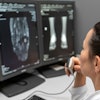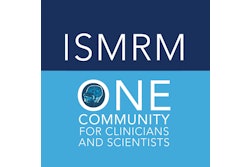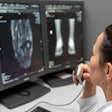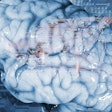Dear Artificial Intelligence Insider,
With myriad technical and financial issues to navigate, it can be challenging to figure out how to begin a project for implementing artificial intelligence (AI) technology in radiology. Consultant Michael J. Cannavo -- the PACSman -- has some suggestions and useful tips on how to get started, beginning with enlisting a champion for the initiative.
Find out what else is on Cannavo's list in this issue's Insider Exclusive: part 4 of his Practical Considerations for AI series.
In other news, researchers reported that AI can transform low-dose CT (LDCT) scans into high-quality exams that radiologists may even prefer over LDCT scans generated via commercial iterative reconstruction methods. In addition, a deep-learning algorithm was found to bolster the performance of clinicians for detecting intracranial aneurysms on head CT angiography exams.
AI is poised to enhance all aspects of radiology, and musculoskeletal (MSK) imaging is no exception; a team of researchers has highlighted six key MSK applications for AI. In addition, computer-aided detection software can help to stratify risk in lung cancer patients, as well as avoid the use of contrast for MRI in patients with multiple sclerosis. A group of researchers also concluded that bringing radiology AI to clinical practice requires tackling four key AI research priorities.
We've also got coverage from the RSNA Spotlight Course: Radiology in the Age of AI, which was held recently in Burlingame, CA. In video interviews, Dr. Charles Kahn discusses exciting new applications, and Dr. Curtis Langlotz, PhD, shares his thoughts on how AI will impact radiology. In a keynote address at the meeting, AI luminary Andrew Ng, PhD, offered advice on how radiologists can help to overcome the challenges holding back clinical adoption of AI.
You can also find articles on using AI to help with the following:
- Trim radiologist workloads for mammography
- Enhance detection of pulmonary nodules
- Reduce overdiagnosis of breast cancer
- Detect cerebral microbleeds on MRI
- Optimize risk stratification of thyroid nodules
- Assess CT lung screening exams
AI was also a popular topic at last month's annual meeting of the International Society for Magnetic Resonance in Medicine (ISMRM) in Montreal. Presentations at ISMRM 2019 described how AI paves the way for precision medicine and how deep learning is moving toward clinical practice. You'll also want to check out video interviews with Dr. Bradley Erickson, PhD, on machine learning and clinical MRI; Tal Arbel, PhD, on machine learning and image analysis; and Jong Chul Ye, PhD, on machine learning and data reconstruction. Presenters of another talk reported that AI can yield high-quality synthetic contrast-enhanced brain MR images, helping to avoid the use of gadolinium-based contrast agents.
Do you have an idea for a story you'd like to see covered in the Artificial Intelligence Community? Please feel free to drop me a line.




















